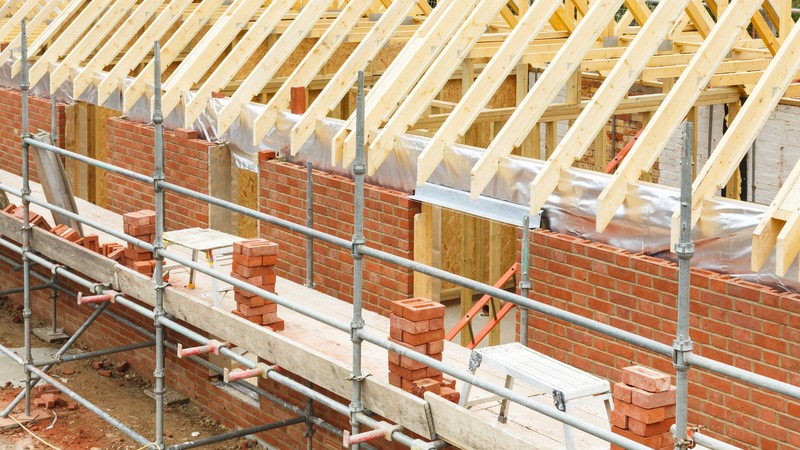The government has published two major planning announcements aimed at the housebuilding sector. David Parry explains what’s in each of them.

The end of May saw the publication of two major government announcements for the construction sector, both setting out further intentions to free up the planning system and get Britain building.
The government’s first release, published on 25 May, followed initiatives to reform the English planning system to make it easier and faster for housebuilders to achieve the ambitious 1.5 million new homes target.
It changes the narrative from “how can we do this?” to “changes have been made, so get on and build”, placing the weight of responsibility firmly on the industry.
Key to this press release was information on new accountability mechanisms to make sure housebuilders are fulfilling their side of the bargain and delivering sites at speed, rather than leaving sites “half-finished for years”.
The new mechanism introduces a system that will require housebuilders to set delivery timeframes before gaining planning permission that they can be held accountable for, should permission for the new homes be granted by local authorities. Housebuilders will then have to produce annual reports against these delivery timeframes to demonstrate they are delivering on their commitment.
Delay penalties
If housebuilders consistently fall behind on their timeframes without ‘reasonable justification’, they will be subject to a new Delayed Homes Penalty.
According to the government, this will be a last resort measure to penalise those housebuilders that consistently do not deliver on sites with planning permission and would be applied by local authorities on specific developments in their areas.
Importantly, there will be a size threshold for the penalty, to be set out in further detail at a future date, but which will likely be based on the existing model for external delay factors set out in Homes England’s build-to-rent model.
There could be severe consequences for those who meet the criteria for receiving a delay penalty, including new powers for local authorities to decline to determine planning applications from those connected to planning permissions that have not been built out at ‘reasonable rates’.
The government is currently consulting on these plans through the Planning Reform Working Paper: Speeding Up Build Out, which will be accepting responses until 7 July. The consultation can be found here.
Backing for SME builders
The second press release, published on 28 May, centred around the government’s plans to reinvigorate the SME housebuilding sector, which in previous decades delivered the majority of new homes.
The plans include streamlining the planning process further for SME housebuilders by taking away the decision-making powers from local authority councillors on sites of up to nine homes, instead having decisions on these sites made by planning officers alone. The streamlining process also includes relaxing rules on biodiversity net gain (BNG) requirements for small sites of up to nine homes.
For sites between 10 and 49 homes, a new site category (‘medium site’) will be created, which will exempt SME housebuilders from the Building Safety Levy and offer simplified BNG rules.
The Planning Reform Working Paper: Reforming Site Thresholds has been published on site size thresholds and will accept responses until 9 July. Similarly, a technical consultation on relaxing BNG rules for minor, medium and brownfield development has been published by the Department for Environment, Food & Rural Affairs and will be accepting responses until 24 July.
Mixed reactions
Alongside the announcements mentioned above, the SME housebuilders press release also contained new information about plans for increased financing options for SMEs through Homes England.
These plans will include more sites being set aside specifically for SME housebuilders, as well as a new National Housing Delivery Fund, which will be confirmed in the upcoming spending review on 11 June.
Finally, a new Small Sites Aggregator pilot will be set up to “bring together brownfield sites that would otherwise not have been developed”.
The reaction to these announcements has been mixed, with many welcoming the greater protections for SME housebuilders within the planning system, but criticising the additional penalties suggested in the Speeding Up Build Out working paper.
CIOB will be responding to the various consultations mentioned above. If you have any thoughts or feedback on the proposals, please contact [email protected].
David Parry is CIOB’s senior parliamentary and public affairs officer.











